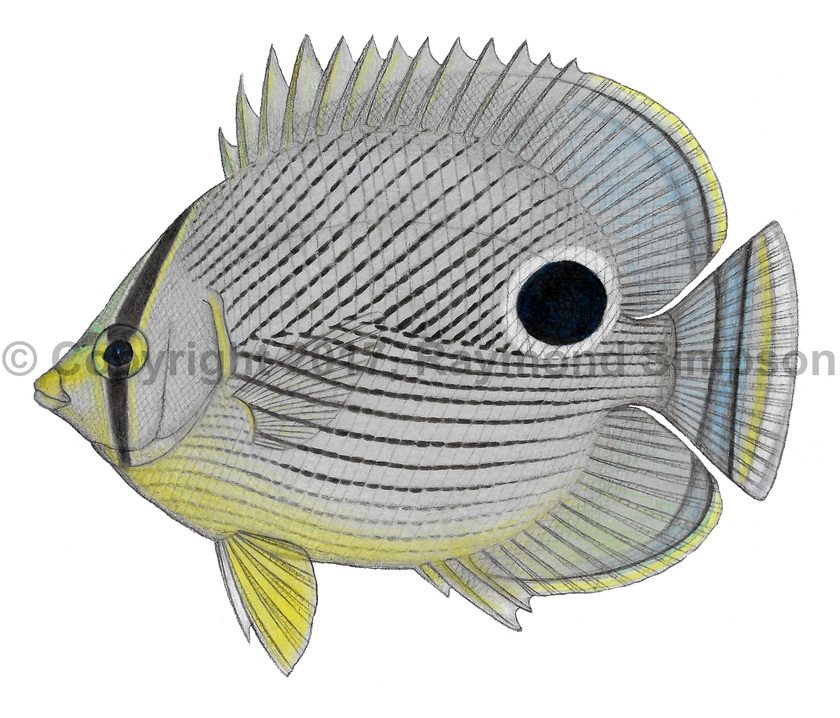
Common Name
Foureye Butterflyfish
Year Described
Linnaeus, 1758
Identification
Dorsal Fin: XIII, 18-20
Anal Fin: III, 16-17
Pectoral Fin: 14-15
Lateral Line Scales: 35-41
Body oval, symmetrical and highly compressed. Snout short with a tiny terminal mouth. Slender teeth in jaws in several rows. Preopercular edge lacks spines. Dorsal spines not elongated. Soft dorsal and anal fin angular and lining up cleanly with caudal fin. Second anal spine longest. Caudal fin evenly rounded. Pelvic fins thin and almost reach anal fin origin. Pectoral fin under angle of opercle. Lateral line arched in front but incomplete. Axillary scale present. Body, head, and most of median fins scaled.
Color
Adults pale gray with many oblique black parallel lines running from midline of body in both directions. Yellow wash often present on edges of body. A large black ocellus present on body under soft dorsal fin ringed with white. A prominent black band passes through eye from nape to chest. Dorsal, anal, and caudal fin with two thin black bands with dusky coloration in between. Rest of fins range from gray to yellowish with clear margins. Pelvic fins yellow. Pectoral fins clear. Juveniles with eyeband and two broad black bands on mid and rear body. There are also two ocelli on the soft dorsal fin and under it. Nose and pelvic fins bright yellow. Sleeping adults can brighten or hide dusky gray bars corresponding to their location in juveniles.
Size
Maximum size to 15cm SL. Mature at >9cm SL.
Habitat
Coral reefs. Usually seen solitary or with a mate. Juveniles in seagrass or mangrove beds.
Range
Known from North Carolina to northern South America, including the Gulf of Mexico and Caribbean Sea. Also Bermuda. Vagrants north to Massachusetts.
References
McEachran, J.D. and J.D. Fechhelm. 2005. Fishes of the Gulf of Mexico. Volume 2: Scorpaeniformes to Tetraodontiformes. University of Texas Press, Austin. i-viii +1-1004.